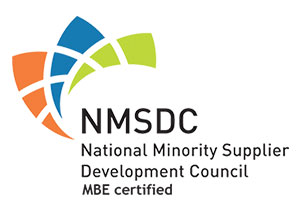The Wage and Hour Division of the U.S. Department of Labor, which is responsible for administering and enforcing the Family Medical Leave Act for most employees, has published new FMLA forms on its web site.
The revisions are not very dramatic, notably including references to the Genetic Information Nondiscrimination Act of 2008 (GINA).
The revised forms are meant to catch up with statutory amendments to the FMLA that expanded the FMLA’s military caregiver leave and qualifying exigency leave provisions. The amendments extended military caregiver leave to eligible employees whose family members are recent veterans with serious injuries or illnesses, and expanded the definition of a serious injury or illness to include injuries or illnesses that result from preexisting conditions. The amendments also expanded qualifying exigency leave to eligible employees with family members serving in the Regular Armed Forces, and added a requirement that for all qualifying exigency leave the military member must be deployed to a foreign country.
The FMLA entitles eligible employees of covered employers to take unpaid, job-protected leave for specified family and medical reasons with continuation of group health insurance coverage under the same terms and conditions as if the employee had not taken leave.
Covered private sector employers are those who employ 50 or more employees for at least 20 workweeks in the current or preceding calendar year.
In order to be eligible to take leave under the FMLA, an employee must work for a covered employer and have worked 1,250 hours during the 12 months prior to the start of leave; work at a location where the employer has 50 or more employees within a radius of 75 miles; and have worked for the employer for 12 months. The 12 months of employment are not required to be consecutive in order for the employee to qualify for FMLA leave. In general, only employment within seven years is counted unless the break in service is (1) due to an employee’s fulfillment of military obligations, or (2) governed by a collective bargaining agreement or other written agreement.
Eligible employees are entitled to:
- Twelve workweeks of leave in a 12-month period for:
- the birth of a child and to care for the newborn child within one year of birth;
- the placement with the employee of a child for adoption or foster care and to care for the newly placed child within one year of placement;
- to care for the employee’s spouse, child, or parent who has a serious health condition;
- a serious health condition that makes the employee unable to perform the essential functions of his or her job;
- any qualifying exigency arising out of the fact that the employee’s spouse, son, daughter, or parent is a covered military member on “covered active duty;” or
- Twenty-six workweeks of leave during a single 12-month period to care for a covered military service member with a serious injury or illness if the eligible employee is the military service member’s spouse, son, daughter, parent, or next of kin (military caregiver leave).
In recent amendments the Department of Labor clarified the definition of “son and daughter” under the FMLA “to ensure that an employee who assumes the role of caring for a child receives parental rights to family leave regardless of the legal or biological relationship,” and specifying that “an employee who intends to share in the parenting of a child with his or her same sex partner will be able to exercise the right to FMLA leave to bond with that child.
In February 2015, the Department of Labor also amended the definition of “spouse” under the FMLA to extend FMLA leave rights and job protections to eligible employees in a same-sex marriage or a common-law marriage entered into in a state where those statuses are legally recognized, regardless of the state in which the employee works or resides. As a result, even if an employee works where same-sex or common law marriage is not recognized, that employee’s spouse triggers FMLA coverage if the employee married in a state that recognized same-sex marriage or common law marriage.
Here are links to the revised FMLA forms online:
- WH-380-E Certification of Health Care Provider for Employee’s Serious Health Condition (pdf)
- WH-380-F Certification of Health Care Provider for Family Member’s Serious Health Condition (pdf)
- WH-381 Notice of Eligibility and Rights & Responsibilities (pdf)
- WH-382 Designation Notice (pdf)
- WH-384 Certification of Qualifying Exigency For Military Family Leave (pdf)
- WH-385 Certification for Serious Injury or Illness of Current Servicemember — for Military Family Leave (pdf)
- WH-385-V Certification for Serious Injury or Illness of a Veteran for Military Caregiver Leave (pdf)
The forms also can be accessed for free at: http://www.dol.gov/whd/fmla/2013rule/militaryForms.htm



